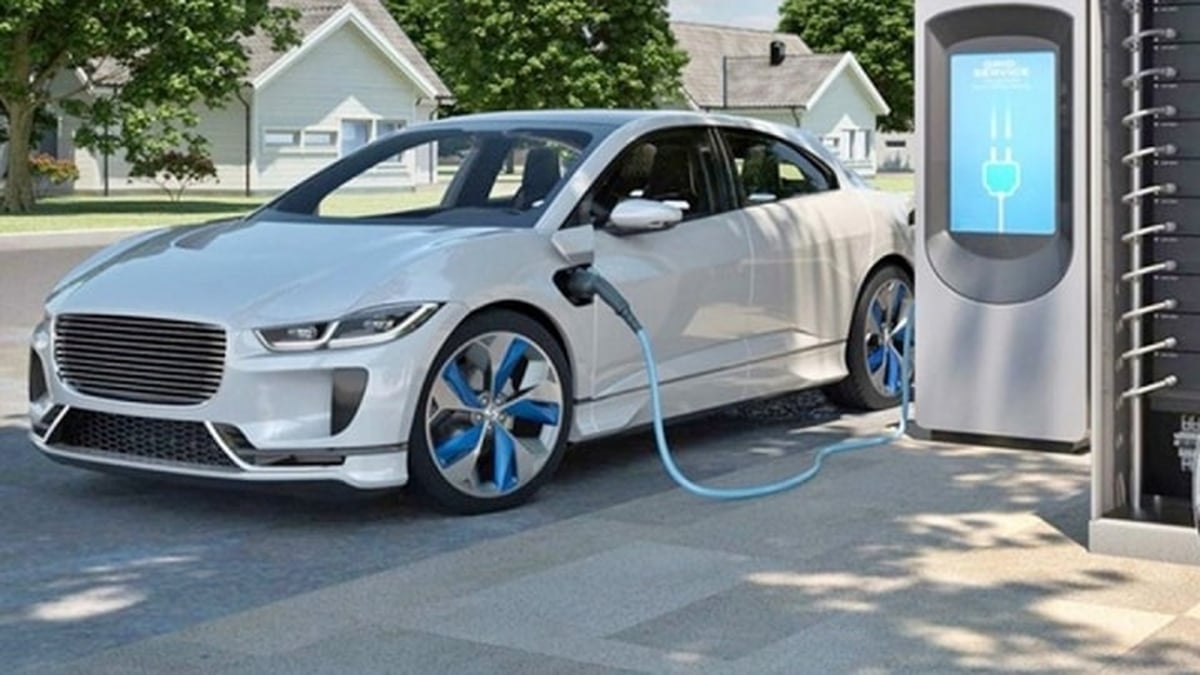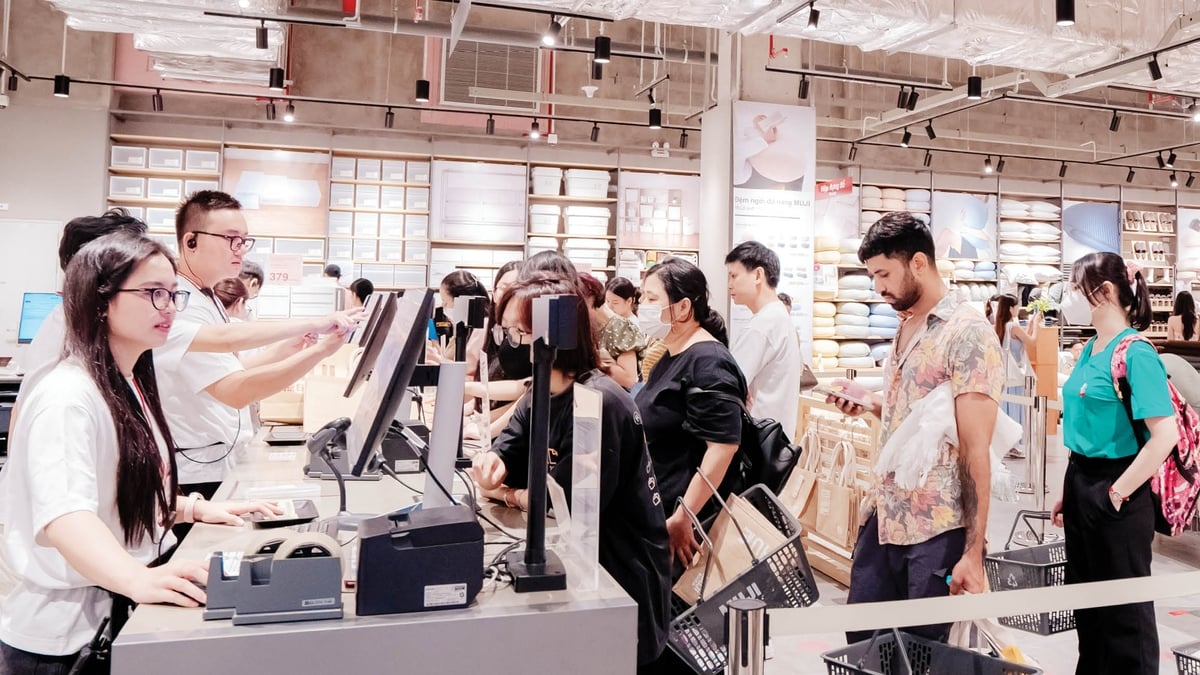ANTD.VN - The State Bank is considering setting a limit for online payments and card payments requiring biometric authentication to ensure customer safety and will implement it vigorously in August and September 2023.
Sharing at the seminar "Ensuring security and safety for electronic payments in the digital age" this morning (August 21), Mr. Pham Anh Tuan, Director of the Payment Department, State Bank of Vietnam (SBV) said that the management agency is researching to regulate transaction limits that require biometric authentication to identify the owner.
The representative of the State Bank said that in reality, people's awareness of protecting personal data is not really good and not high, which has led to phenomena such as: renting, lending, buying and selling accounts.
A typical case recently prosecuted by Cao Bang Provincial Police shows that in just 6 months, the amount of money flowing through this fraudulent account was nearly 1,000 billion VND.
“This is a very painful number. This is the damage that people have lost. What should we do now? That means, if we can confirm that the owner is the one who will do it, the possibility of fraud will be reduced,” said Mr. Pham Anh Tuan.
 |
Applying biometrics in electronic payment transactions will limit the current explosive fraud situation. |
According to Mr. Tuan, criminals rarely use genuine information. Therefore, the State Bank has submitted to the Governor and received approval to amend Decision 630/QD-NHNN on the plan to apply security solutions in online payments and bank card payments, which will stipulate a limit for biometric authentication.
“This is a very fundamental decision, which will determine which limit will require biometric authentication to identify the owner. That means the person opening the account and the person making the transaction must be the same. This may cause difficulties for some credit institutions, but for the common good, the good of the whole community and society, and to protect the safety of people's deposits, this must be done,” Mr. Pham Anh Tuan emphasized.
According to him, the State Bank will consider setting the limit so that the impact is minimal.
According to statistics from the management agency, in the total number of transactions in the first 6 months of 2023, transaction values of 10 million VND or more only accounted for about 10%, while those of 20 million VND or more only accounted for about 5%.
“Thus, the impact on user experience is very small, not to mention that when making a money transfer transaction, you only need to enter your face and authenticate with the face used to open an account, with the current technology application situation of credit institutions, it only takes about 3-5 seconds. Thus, the impact on user experience is not large. But what do we get in return? That is, people can “sleep soundly”, there will be no case of my money being transferred without my knowledge.
In addition, with large transaction values, it will take time for the fraudster to transfer money from the customer's account and "can only get in but not out" because most of the accounts receiving money are not owned by the owner. Thus, the bank still has the opportunity to retain the assets that the fraudster has defrauded and appropriated in order to have the opportunity to refund the users who were taken advantage of by the fraudster" - the leader of the Payment Department analyzed
Mr. Tuan said that this is one of the measures that the State Bank will vigorously implement in August and September 2023. However, there will be a transition period for credit institutions to prepare infrastructure, conditions for editing applications, collecting data, etc. to prepare before the decision officially takes effect.
“The State Bank hopes to receive support from the community, society, ministries, departments, and branches, including credit institutions, to join hands with the State Bank to gradually overcome and minimize the situation of fraud and scams that have been developing in recent times,” Mr. Tuan added.
For international card organizations, Mr. Pham Anh Tuan also mentioned the need for higher level security authentication.
“We have also mentioned this issue to Mastercard and Visa. If all transactions are secured with 3D Secure, it is certain that no money can be lost. We can have our card numbers exposed, our CVV can be exposed, but when a message is sent to the cardholder to confirm the transaction and the cardholder does not perform it, no transaction can be performed.
However, although Master Card and Visa have provided a lot of support, the rate of 3D Secure implementation in the recent past is not yet complete. We really hope that this rate will gradually increase, from which the questions and complaints of cardholders when their information is not used properly will gradually decrease" - the leader of the Payment Department said.
Four difficulties and challenges
Mr. Pham Anh Tuan pointed out 4 main groups of difficulties and challenges for safety and security in the field of digital transformation in the banking industry.
Firstly, the legal framework has not kept up with the progress of science and technology. Many products and services apply modern advanced technology but do not have enough legal documents or the legal framework has not kept up, leading to many difficulties in application and handling.
Second, crime is increasing at a high rate compared to many years.
Third, the lack of compatibility between infrastructures. “It can be said that currently, banks use bank data, police agencies use police agency data (except for Project 06 which is in the initial stages of implementation), telecommunications networks also use private data, which cannot be exploited. If these data infrastructures are compatible and integrated and connected, then in the case of customers opening accounts, registering phone numbers, using Mobile Banking, banks can check whether the phone number of the owner and the person performing the operation is correct or not,” he said.
Currently, these infrastructures are gradually moving towards combining with each other to build a common ecosystem and exploit it effectively, contributing to preventing fraud.
Fourth, the human problem. The psychology and cash consumption habits of people in remote, isolated and island areas are still large. People's limited skills in using digital banking services have contributed to the support of scammers and fraudsters. Fraudsters exploit customers' lack of knowledge and poor skills in using digital banking services to commit fraud.
Source link
























![[Photo] National Assembly Chairman attends the seminar "Building and operating an international financial center and recommendations for Vietnam"](https://vphoto.vietnam.vn/thumb/1200x675/vietnam/resource/IMAGE/2025/7/28/76393436936e457db31ec84433289f72)












































































Comment (0)